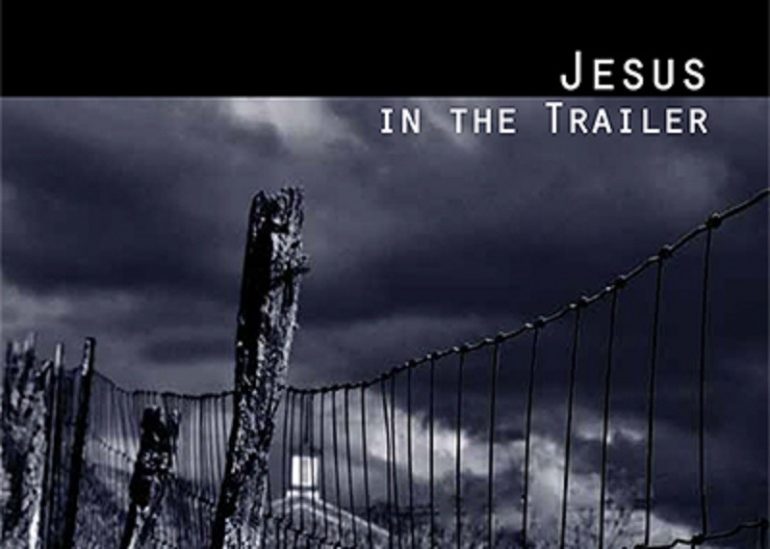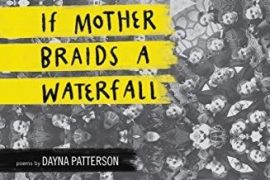It’s often the small moments in life that are revelatory, and reading Andrew K. Clark’s debut collection, Jesus in the Trailer, is a reminder that we must not overlook anything. Page after page, Clark reveals a world of neglected landscapes and people, and of the small, daily triumphs that make life worth living.
With the same strokes of Edward Hopper and Andrew Wyeth, Clark extracts the beauty and melancholy in the most ordinary of scenes, as he does in the title poem:
The boy found Jesus
in the trailer
resting on the edge
of a mountain, rocking
gently on cinderblocks.
Inside a sweaty arm
with a cross tattoo
slapped the wall
and mama brought beer
without speaking.
Up the ladder in July
his girlfriend took off her top
leaving only red white and
blue bottoms, they
sunbathed there, aluminum heat
burning their backs.
Jesus in the Trailer can teach us how to slow down in a world that doesn’t. It might be rare that poetry collections move us in this manner, but when they do, they should not be overlooked, and if they aren’t, we are bound to find ourselves more than willing to “listen to the birds and instead / of just hearing their songs, / memorize them.”
Esteban Rodriguez, Interviews Editor
The making of Jesus in the Trailer (Main Street Rag Press).
There’s a place you don’t want to go. It’s a place you feel you’ve left behind, but you know it’s still there. Maybe it’s there when you close your eyes, or perhaps when you stand in the trees and the fall air whips up from the valley below. I can’t tell you how many artists and writers have described their version of this forbidden place to me, and their stories mostly attest to how long they resisted, how long they tried not to write about the thing they knew they had to write about, how long they tried not to paint it, sing about it, etc.
For me, the place I didn’t want to go was the religion of my childhood. I was raised in a very conservative tradition full of camp meetings and revivals, of shouting to Jesus, of gospel music played loudly over huge PA systems in the August heat on the banks of the French Broad River in my hometown of Asheville, NC. I wrote poems about other things, but when I finally surrendered to my need to explore this place, my forbidden place, something happened to my writing. Instead of the way poems would come in fits and starts, they gushed out of me. They didn’t come elegantly or cleanly, but still they came, and my job was to write them down, to capture the feeling they gave me. The book features spiritual poems, love poems, violent poems; poems that plumb the darkness and the light.
The poems in Jesus in the Trailer mostly came after this moment of surrender, and many were written within a five-year period. I simply decided I was going to go there and go there in a big way. The title poem is something of a departure from the other poems in terms of structure and sentiment, but in the end, I liked what had to say about my view of modern religion. The title pushes back against the notion of the “Gospel of Prosperity” you’ll hear from televangelists and in many pulpits these days – the idea that if you’re right with God, your life will show the material signs of God’s abundance. The inverse, then, must also be true: if you are poor or struggling you must lack faith. Placing Jesus in a trailer park is my way of pushing back against this garbage idea.
It took me two years to find a publisher for my book. I had several close calls, and the manuscript was short listed in a few contests. All the while, I kept revising and editing poems, and adding new ones that were stronger. Then I received an offer from two publishers at once, which often happens. In the end I went with Main Street Rag Press, who has a long tradition of publishing quality work by a variety of poets. I shot the cover photo for Jesus in the Trailer near land where I grew up and was pleased the publisher felt the image was strong enough. My good friend and mentor, Eric Nelson, along with friends in my writing groups, helped me polish, order, and refine the poems for the final proof.
I launched Jesus in Trailer at Malaprop’s bookstore in Asheville in January of 2020 and was pleased to have the support of many local writers and friends present. Of course, in March of 2020 the COVID pandemic struck so most of my promotional events for the book were cancelled. This has been an unorthodox year to launch a book, but I’ve been fortunate to participate in many virtual poetry readings, including Wiley Cash’s Corona Canon. I am in awe of the writing community and how many brilliant souls are willing to come together. I am currently editing my debut novel The Day Thief, a story of magical realism set in 1920s Appalachia that carries many of the same themes as my poetry. I hope to bring it to the world in 2021 or 2022.





